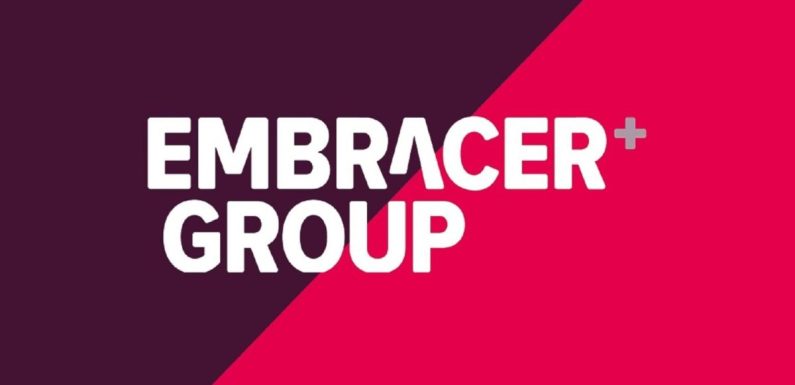Accounting Subject Guide
You explore how individuals decide whether risks are worth taking and how investment companies use software to minimise financial risks and maximise rewards. You explore important concepts used by investment https://www.bookstime.com/articles/cash-disbursement-journal banks and fund managers, including mean-variance analysis, net present value and pricing models. In the first year you’ll also cover wider business topics that every manager needs to know.

Managerial accounting also encompasses many other facets of accounting, including budgeting, forecasting, and various financial analysis tools. Essentially, any information that may be useful to management falls underneath this umbrella.
The course offers flexibility in the accounting areas in which you might choose to specialise. There is an emphasis on international developments in accounting and finance, and an opportunity to study a foreign language at each credit level. Many graduates also undertake further study, proceeding to a Master’s degree in accounting or finance. You will develop a detailed knowledge of the applied aspects of accounting, together with the team-working, problem-solving, communication skills and commercial awareness which companies need in a rapidly changing and complex global business landscape. The Department of Accounting combines global appeal with a distinctive European orientation in terms of institutional knowledge and affiliations, as well as intellectual traditions.
You will also learn to evaluate alternative proposals and to communicate information to a business audience in an effective manner. You will consider themes such as business objectives, strategy and culture together with a focus on key economic concepts such as microeconomics and macroeconomics.
79% of Essex Business School undergraduates are in professional employment or postgraduate study within six months of graduating (DLHE 2017). Many of our accounting, finance and banking courses are professionally accredited and develop your ability to solve complex business problems and make responsible, ethical decisions that ensure organisations thrive, not just survive. TMF Group, with over 7,000 experts in more than 83 countries, is able to act as an extension to your finance department; helping you to stay on top of the reporting and regulation risks often presented by international trade. Our local, in-country, accounting teams are dedicated to helping you comply with local reporting requirements. We also offer a wide range of accounting related services to help improve your international operations.
Do you need to take an English test to study at university in the UK?
These will allow students to effectively match problem-solving techniques to a range of differing scenarios. In doing so, students will be expected to operate in teams, reflect on their practice and recognise aspects for self-development and improvement. This module provides accounting students with an introduction to business and explores the role of the accountant in business.
In this introductory module you’ll discuss the true nature and role of accounting and will consider who uses accounting information and for what purpose. You’ll also be introduced to the role of regulation in governing accounting practice. This module provides essential skills and information you need to know whether you want to become an accountant, be a manager or start your own company. If you are an international student requiring a Tier 4 visa to study in the UK please see our immigration webpages for the latest Home Office guidance on English language qualifications.
Management accounting , also known as managerial accounting, provides information to management for analysis, decision making, planning and control of the business. For example, information relating to investment decisions, budgeting and performance measurement. Employers desire evidence of professional experience in the role that you are applying for.
- You will be equipped with the ability to analyse scenarios, case studies and actual companies with respect to financial management.
- This module can count towards your degree.
- One of the primary focuses of this module is to help you understand how to plan and conduct surveys but also interpret the results within the appropriate business context.
- Financial accounting is the process of recording, summarizing and reporting the myriad of a company’s transactions to provide an accurate picture of its financial position.
- Read about 10 amazing jobs you can get with an accounting qualification.
- You’ll learn how to manage a company’s money and ensure that it stays afloat throughout the year.
5 Accounting Principles
The course is also able to offer exemptions towards both The Chartered Institute of Public Finance and Accountancy (CIPFA) and the Association of International Accountants (AIA). This module will help prepare you for future employment, by further developing your career-related and transferrable skills. During the module you will critically reflect on your time at University and develop your knowledge and understanding of leadership, as well as your consultancy and project management skills. You will also develop an understanding of how effective strategic leadership can influence organisational behaviour, strategic management and financial decision-making.
From management accounting and financial reporting to business law and investment management, you’ll explore different disciplines to help you understand every aspect of accounting and finance. This module will provide you with a foundation in financial accounting. You will develop skills, knowledge and understanding of double entry book keeping and the preparation of financial statements. You will also study the contexts in which corporations operate and the regulatory frameworks and requirements which impact upon their accounting processes. You will be introduced to the interpretation of financial reporting information and learn how to examine the way in which this information is used for decision making by different stakeholder groups.
You will also develop the key interpersonal skills needed for success in your professional career. Through study of the core units you will develop sound knowledge and understanding of accounting practices, financial management techniques, the key and contemporary theories and practices of management and organisational behaviour. Learn the underlying principles and concepts of financial accounting, accounting techniques and the preparation of basic financial statements. In this qualification you will master more complex accounting disciplines including financial processes, advanced bookkeeping, final accounts and ethical practices for accountants.

The results of all financial transactions that occur during an https://www.bookstime.com/ period are summarized into the balance sheet, income statement, and cash flow statement. The financial statements of most companies are audited annually by an external CPA firm.
You will explore issues relating to both the quantitative and qualitative reporting of performance; and study the theoretical framework surrounding financial reporting. The subjects you will study include, accountability and its relationship to corporate reporting, contemporary issues in corporate reporting, corporate citizenship and its broader responsibilities, aspects of relevant accounting theory and accounting and accountability aspects of social and environmental accounting.

The course is also has also been re- accredited by the Chartered Institute of Management Accountants (CIMA). We’ve designed this course to open your mind to a broad range of financial functions and principles.
You will be able to demonstrate the knowledge, skills (including critical analysis, problem solving and expressing ideas verbally and in writing) and values (your work ethos and resilience). These things combined make you business ready. From September 2018, all new students starting an undergraduate business degree will have the option to apply for a 12-month full-time professional placement in a role with graduate level learning opportunities. Students will complete this between years 2 and 3 of the programme. Learn about people and project management, to complement your developing sales journal skills.









